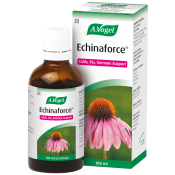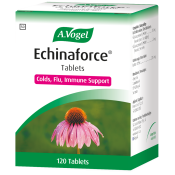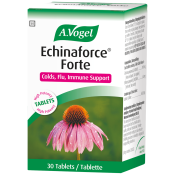Symptoms are similar
Many symptoms are similar, such as a sore throat and coughing, but there are several differences that help distinguish between a cold and flu. While many people will say they have flu, the fact is most winter infections are due to the cold virus and these infections usually clear up within a week to ten days.
| Cold | vs | Flu |
| Symptom | ||
| Starts gradually over a couple of days. Lasts for 7-10 days | Onset | Symptoms start quickly within hours. Lasts for 1-2 weeks |
| Sometimes | Headache | Frequently |
| Yes | Sneezing | Sometimes |
| Runny nose with lots of clear fluid initially. thickens on days 2-5 | Nasal symptoms | The nose is sometimes congested but not always |
| Common, especially the first two days | Sore throat | Sometimes |
| None or mild aches | Muscle and body aches | Frequent. These can be severe, usually in the arms, legs and back |
| Coughing (often with green or yellow colour) and tight chest are usually mild but can be persistant | Respiratory tract | A dry cough is common, sometimes severe and can develop pneumonia |
| Rare | Fever | Frequent |
| Not common but if so, will be mild and short lived | Fatigue | Extreme exhaustion is usual, especially in the first two days |
| None | Chills and sweats | Yes |
| None | Digestive disturbances | Diarrhoea and vomiting common in children |
| A post nasal drip and painful swallowing due to sore throat can lead to poor appetite | Poor appetite | Same as cold |
Table explaining cold versus flu symptoms.
There are more than 200 known cold viruses and they don't only circulate in winter. How often have you had a summer cold? Colds are very contagious and easy to spread because when an infected person coughs or sneezes, they send millions of virus-containing droplets into the air, right into the path of whoever is nearby.
Plus the viruses can also land on commonly used objects like door handles, lift buttons, ATMs or trolley handles, even bathroom towels. Touching your eyes, nose or mouth after encountering one of these contaminated objects transfers the virus right to the ideal site of infection. Within a few hours, you start sneezing, your throat feels scratchy and before you know it, you’re coming down with a cold.
Unless you hibernate at home for the whole of winter, you're not going to avoid coming into contact with cold viruses but you can do some things to reduce your chances of getting ill.
Eat well
Eat lots of fresh fruit and vegetables, especially seasonal varieties during winter as these often contain higher levels of vitamin C. Drink lots of filtered water daily and avoid sugar and processed foods as much as possible.
Wash your hands
Wash your hands often and avoid touching your face. These two simple habits make a huge difference between staying well or having to pause your busy life to be sick for a week or more.
Get enough sleep
The average adult needs seven to eight hours of sleep a night. People who don't get enough sleep regularly have weaker immune function and resistance to viruses and infections. If you have trouble getting a good night's sleep, here are some tips that might help.
Manage your stress levels
Ever wondered why after a stressful time at work or exams, you suddenly get slammed by a cold? It's because stress also negatively impacts your immune system, leaving you vulnerable to infections. Learn more about what stress does to your immune system here.
Support your immune system
Consider supporting your immune system with an immune regulator like A.Vogel Echinaforce. Used daily, A.Vogel Echinaforce helps to modulate (regulate) the immune system, strengthening it and helping it to better fight off cold and flu viruses.
This is very important for people who are elderly, stressed or who smoke as they are more likely to get ill in winter. For these people, the complications arising from a cold or flu, such as bronchitis or pneumonia, can be severe. If you do get sick, used at the treatment dose A.Vogel Echinaforce can help prevent these complications from developing.
Treating cold and flu symptoms
There are a number of herbal and homeopathic remedies which you can use to treat symptoms of colds and flu.
- Sore throats can be soothed with A.Vogel Sore Throat Spray.
- Headaches can be treated with A.Vogel Headache Formula.
- Coughs can be relieved with A.Vogel Cough Formula.



